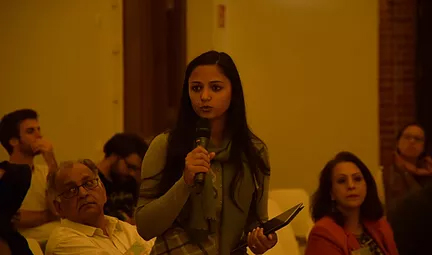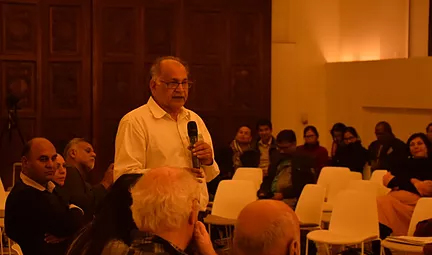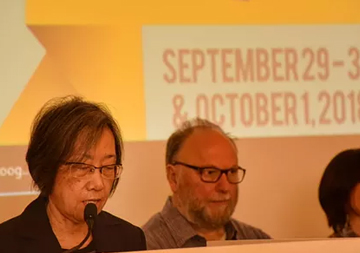AEPF 12: Day 1
The AEPF opened this morning with Mayor of Ghent, Mr. Daniel Termont welcoming the participants with all their remarkable diversity, inclusivity and colours.He said that Ghent was happy to be chosen for this forum especially since learning from each other in this age is very important. He stressed that in Ghent people came before profits. He said that Ghent is known for its fair trade practices and the participation of its citizens in public affairs and services. He emphasised the role of local government in driving changes toward a just, sustainable world and noted the growing challenges of ethno-nationalism, state repression of activists. Serge Beel,who represented 11.11.11 welcomed the delegates stating that changing the current system was important to the world more than ever before. He said the many Belgian civil society organisations associated with 11.11.11 welcomed AEPF, and support the ideas, activities of AEPF.
AEPF IOC member Andy Rutherford recalled Sombath Somphone, a community worker and AEPF activist, abducted in Laos in 2012 who played a key role in AEPF 9 in Laos. Ms. Shui Meng, wife of Sombath Somphone made a passionate appeal that civil society should continue to fight for the disappeared, remain true to human rights and hold states responsible for their actions against activists. She said that she would not keep quiet until she gets the answer, and what happened to Sombath could happen to anyone.
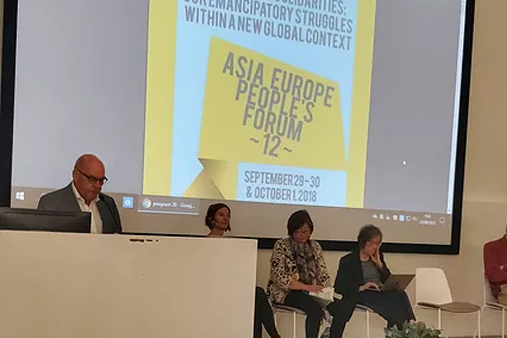
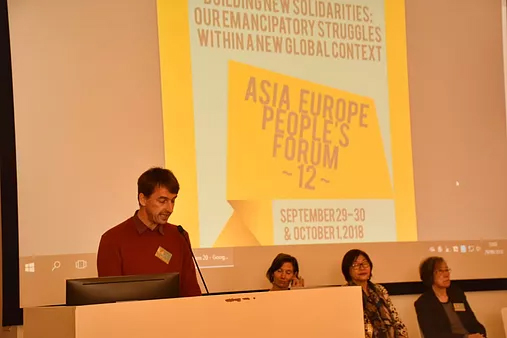
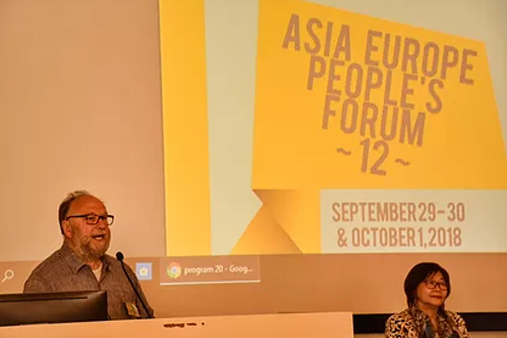
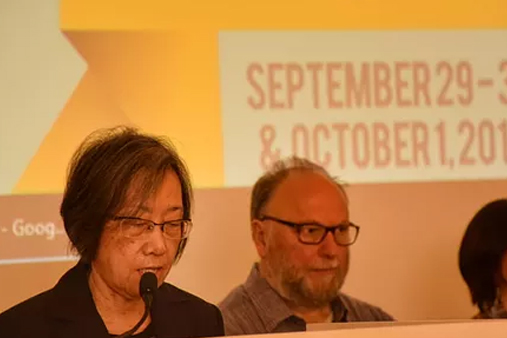
The AEPF conducted the “Meet Ghent”, that saw 7 parallel meetings on issues ranging from the ongoing trade agreements and their impact on resources andlivelihoods; New migrants in the city; Climate Action now; the story of the refugees in Calais; and the digital economy and food. These events brought a combination of experts, survivors, activists and grass roots campaigners, all of whom told the stories from below that are not often heard in the dominant traditional media.Experiences that can change perspectives and evoke support for a more humane international society were expressed.
The plenary panel 1 analysed the challenges to democracy, whereby in country after country, right wing populists had been voted to power. Dr. Walden Bello, who could not make it to the forum, addressed the forum with a video message that highlights the threats of rising right wing politics and ideologies across the globe. James O’Nions, an activist from Global Justice Now spoke about the political circumstances that ultimately led to the Brexit and highlighted its demerits. Christos Giovanopoulos, an engaged grass root activist of Greece focused on building alternatives to the neo liberal system. He emphasized the importance to create our own narratives and fight the populist and authoritarian tendencies created due to the failure to effectively address globalization. Agnes Gagyi, analysed the alternative social movements to globalisation, as part of a civil autonomy. And showed how civil resistance was the way as countries, for example, in East European case integrated into globalisation. Bonn Juego, analysed the rise of right wing populisms, why they appeal to the masses and what is needed to counter them. He argued for reclaiming progressive discourse, rediscovering the strategy of linking most basic day to day work with the most fundamental issues, rethinking approach on law and on the importance of socio-economic reforms. Achin Vanaik, writer and activist from India spoke about the growth of right wing in India and what should be the responses to counter it. He pointed out that social media is an important tool in shaping opinions and mobilising people but working on the ground to bring changes is equally important.
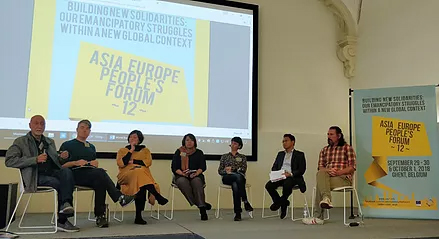
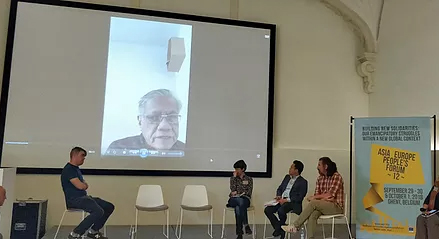
The plenary panel 2 analysed game-changing challenges and implications for Our Visions and Alternatives. Matteo Gaddi spoke of Industry 4.0 with increasing delocalisation, control and defining labour organisations as a sustainable model. Daniela Gabor analysed the old and new economic policy regimes, as under the IMF and other multilateral institute to reveal the close linkages between capital markets and states and the deeply negative impact this has especially on countries like East Europe that are worst effected by the global financial crises. She showed that the current financial crises in states like Turkey would lead to further socio-economic turbulences. Her argument is that people have to struggle not just against populist regimes but also against neo liberal policies that lead to these. Sivan Kartha, Senior Scientist – Stockholm Environment Institute analysed the alarming climate change situation and the malpractices of lobbying and spreading misinformation by power companies. He emphasised that climate change is both a threat and opportunity. It could change the landscape of power if measures are taken. Asad Rehman, Director of War on Want explained how climate change is a product of the system and inequalities. He made the audience aware about the alarming situation emphasizing that by 2050, one in 30 people could be
displaced from homes due to Climate Change. Leida Rijnhout critiqued neo liberal models and spelled out the alternatives that would rise from peoples popular resistance. Marguerite Lopez told how AEPF cannot proceed in a business as usual manner and ideas have to bee translated into powerful people’s movements.
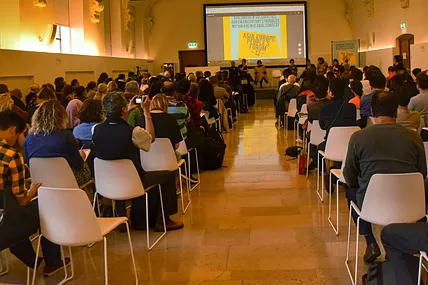
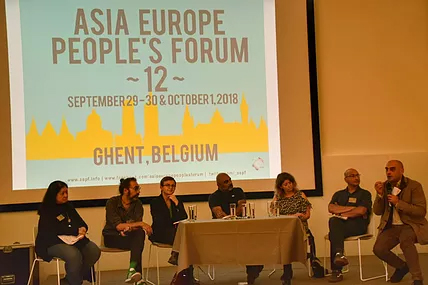
The first day concluded with conversations on New Narratives. This session was moderated by Hamid Mir, eminent Pakistani journalist, news anchor and author. Fiery student leader from Jawaharlal Nehru University, Shehla Shora Rashid, spoke on the impact of right wing ideas and practices on institutions, particularly on universities and the attempt to change the diiscourse.She shared the take aways of their student movement showing solidarities towards marginal sections of the society. Pierre Rousset focussed on empowering the poor in situations of distress as one of the major issues of our times. Achin Vanaik spoke about the need of more and more countries to address the issue of nuclear weapons. Prominent left wing politician from Pakistan, Farooq Tariq narrated the story of an inspiring movement against religiousfundamentalism led by young people in Karachi. The session ended with an interactive discussion on moving ahead with ideas and activism and bringing change on ground.
